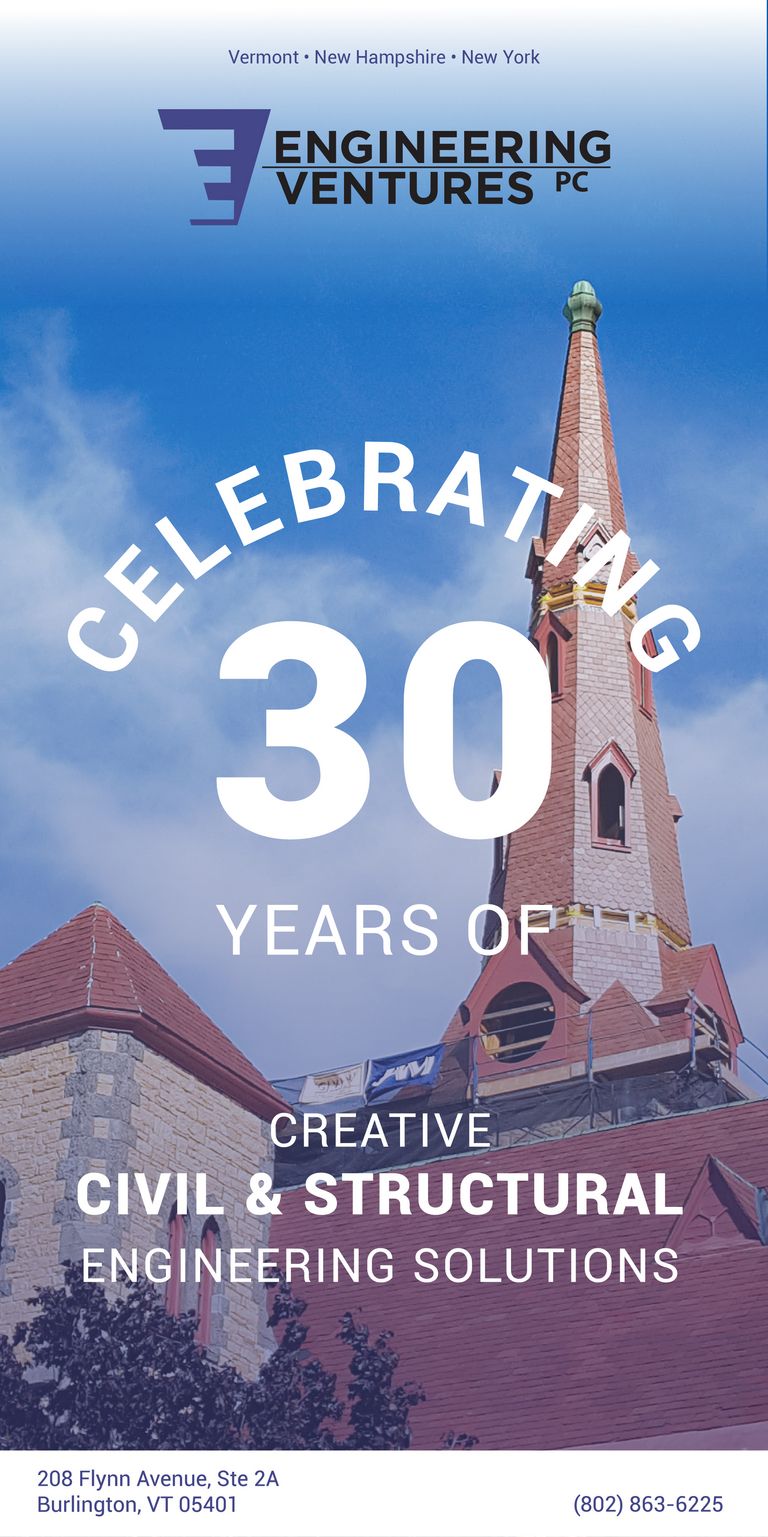End of 2021 Legislative Session Recap
By PPC Co-Chair, John Alden, AIA
In Vermont, there is a two-year bill cycle. 2021 was the start of the 2021-2022 cycle. The PPC and certain AIAVT members at-large provided input and testimony on a number of bills. For some bills, we have written Position Briefs that were delivered to legislators and committee members. For others, we contacted key representatives and committee members directly by email and phone. We note that this is a reoccurring effort every year. Anyone interested in more information or getting involved to advocate for a specific bill can reach out to Sarah or a PPC member. Work continues in Montpelier at the sub-committee and work group level over the summer and fall. The PPC will send out additional updates as developments become known.
Outcome for this past year were mostly disappointing with most bills failing to advance, getting stuck in committee or just running out of time at the close of the 2021 session. We expect most of these bills to be back again next year. As in much of the business world, general disruption to normal legislative activity was hampered by Covid restrictions, remote meetings and a focus on Covid relief planning.
Notable successes are the passing of a K-12 public school infrastructure and planning bill, and the passing of the taxation bill allowing forgiven PPP loan funds to be tax exempt. Bills that have passed are noted below with an Asterix (*).
A summary of tracked bills is below. Additional/full details may be found on the VT Legislative website at https://legislature.vermont.gov/bill/status Type the bill number (e.g. “H.157”) into the search bar at the upper right.
The PPC has been discussing permitting reform with the Division of Fire Safety for several years now. There are many ongoing issues such as DFS funding, permit turn-around time, $200k or less projects, and adding more review elements to their purview (like 1-2 family dwellings and RBES/CBES enforcement). There is a lot of legislative work to be done to make the necessary changes. We will keep members informed of what is happening and when to become involved.
Thank you to all who have helped us to stay aware and involved with the legislative issues.
Respectfully, John Alden, AIA, Co-Chair, PPC
PPC's List of Tracked Bills
H.84: Kimball, Marcotte. Act relating to downtown and village center tax credit programs. This bill will expand tax credit opportunities for qualifying projects in a broader number of “designated” categories from Downtowns and Village Centers to now also Neighborhood Development Areas. AIAVT is generally in favor of bills that increase availability of funding/tax credits and will support this bill.
- Rep. Ancel of Calais moved that the committee on Ways and Means be relieved of the bill and that the same be committed to the committee on Commerce and Economic Development which was agreed to. Currently in that committee; no action taken
H.94: McCormack, Burke, and many others- Transportation Modernization Act of 2021: Will promote more use of electric vehicles and increase requirements for electric vehicle infrastructure in an effort to reduce transportation sector greenhouse gas emissions. While not strictly an architectural concern, this bill does promote understanding and activities that are very much in line with what architects are seeking to promote in the construction/building sector.
- Went to the House Committee on Transportation but no action was taken. In committee. Will likely come back up next session.
H.120: Sheldon, McCullough, Dolan. Act relating to Updates to Act 250. This bill makes changes to ACT 250 to streamline/eliminate redundant reviews in designated growth centers (designated downtowns, etc.) and mitigate climate change by addressing emission of greenhouse gases and design/material used in development. One stated purpose of special note is: “Ensure that allowed uses are of a type, scale, and design that complement rather than compete with uses that exist in designated downtowns, village centers, growth centers, or other regional growth areas. Principle retail should be discouraged or prohibited in highway interchange areas.”
- Read to the Committee on Natural Resources, Fish, and Wildlife. No action taken. In committee, waiting for next year.
H.157: Campbell and others- Rewritten from last year, this bill proposes to improve compliance with the Residential Building Energy Standards and give the State a better connection to the contracting companies doing work in the state (currently no real list exists). The base level will require simple registration of contractors. Additional provisions will allow for certification to identify special expertise or training. AIAVT supports this bill and has a good, direct relationship with Representative Campbell.
- This bill was potentially “hours” from being hammered out in a final form for passage. Unfortunately, the session ended without closure on this bill. Much activity is likely for this summer’s work sessions to make sure the final form can move quickly next year. Key stumbling blocks were setting the construction value trigger amount that requires contractors to be registered, and the cost of registering and subsequent certifications to show expertise in specialty areas (if desired).
H.306: Would create a study committee to propose an entity that would coordinate state, regional, and local planning. (May be a broader version of S.19.)
- Read to the Committee on Natural Resources, Fish and Wildlife who referred it to the Committee on Government Operations who in turn referred it back to the Committee on Natural Resources, Fish and Wildlife. No further action taken.
H.311: Would direct the Joint Fiscal Office and the Secretary of Administration to conduct an annual economic analysis and forecast over a 50-year time period to assess the long term economic and fiscal impacts and public policy challenges of climate change.
- Read First Time and referred to the Committee on Natural Resources, Fish, and Wildlife. No further action taken.
H.319: Masland- “Good Samaritan” bill. This bill seeks protections for licensed professional performing services in declared states of emergency. This bill is of very high interest to AIAVT as we are concurrently upgrading our involvement in disaster response. AIAVT member Brian Leet has stepped up to be AIAVT’s Disaster Relief coordinator and we have held several high-level meetings with the Dept. of Public Safety/Division of Fire Safety and are working on how to best support their activities in widespread disasters. This bill is a key safeguard, and we are fully in support of its passage.
- Was not taken up by the first committee it was assigned to and went nowhere. AIAVT will look to speak with Rep. Masland about our involvement and support. We expect this will come back again next year.
H.347: Would provide that tiny houses shall be subject to the same requirements as other types of single-family dwellings for purposes of building codes, zoning, and taxation and shall be subject to the same requirements as mobile homes for purposes of tiny house parks and the sale and transfer of tiny houses.
- Read First Time and referred to the Committee on General, Housing, and Military Affairs. No further action taken.
*H. 426: School Construction Aid There is a reported $17 Mill square feet of K-12 educational space across the state with an estimated $2B in deferred maintenance. AIAVT member David Epstein and others have been working with several State representatives for several years to introduce a bill aimed at reviving the State School Construction Aid funding and develop other mechanisms to focus on much needed school facilities. AIAVT will strongly supports this bill when it arrives.
- Passed by the legislature, signed into law. Many thanks to David Epstein for pursuing this tirelessly and providing a nice summary for the rest of us.
The bill does several things.
- Facility Standards. It directs the Secretary of Education to update facility standards, which now will include IEQ and energy efficiency requirements, as well as new SF requirements for a new school construction program
- Statewide inventory/assessment of all public school buildings resulting in a ranking system of need.
- Funding Source. The AOE will recommend a funding source for a new school construction program
- Facilities Management. Each district/SU must designate a person responsible for facilities and they must be credentialed by receiving training approved by AOE.
- Capital Improvement Plan. Each district must develop and maintain a 5-year capital operations and improvement plan
- AOE Positions. Creates positions at the AOE to manage this effort and distribution of ESSER funds.
- Public Bids. Bids for construction services required for amounts over $40k. (Was 15k)
- Health and Safety Projects. Funding for COVID related projects
- Renewable and Efficient Heating Systems Grant Program. Administered by Eff VT.
- Radon Testing
*H.436: House Ways and Means -Taxation: Among many other things, this bill allows forgiven PPP loan funds to be exempt from counting as taxable income (rule conforms to the federal exclusion but was being considered as a possible revenue source in VT.)
- The bill was passed and signed by the Governor. It will have a positive effect on many Vermont architecture firms who struggled with significant loss of business during Covid and took advantage of the PPP program.
*S.14: Sirotkin. Act relating to deed restrictions and municipal by-laws. This bill would eliminate new binding agreements prohibiting the construction of accessory dwelling units or the development of small lots. Probably most significant with respect to municipal by-laws which often do not allow accessory dwellings and thereby restrict a popular form of housing and increasing density. Accessory dwellings are being re-introduced by many regional and local planning bodies as a way to provide variety more affordable options in a very tight and overpriced housing market. With proper supervision/regulation/fire-safety review, AIAVT should support this bill.
- Passed in both the House and Senate. Signed into law by the Governor in March.
S.19: Lyons, Balint, Bray and others. Act relating to developing a climate change response plan. It further requires hospitals (with regional planning commission assistance) identify climate change related public health risks. Hospitals will be required to include and address these risks in their long-term planning. It is not clear what direct involvement AIAVT may have on this bill, but there may be opportunities for input and supporting greater community involvement in identifying and responding to a wide range of health and welfare concerns for all populations served by hospitals.
- This measure was heard January 27 in the Senate Health and Welfare Committee. No action was taken.
S.34: Sirotkin, Balint, Clarkson and Hooker. Act relating to funding affordable housing. This bill will create one or more housing bonds to provide funding to the Vermont Housing Conservation Board for permanent affordable housing developments and improvements. Previous similar efforts (Housing for All Revenue Bond at $37 Million) provided for 837 homes and leveraged over $200 Million in other resources. This round appears to push for a total of $48 million in bond authorizations. Housing, and especially affordable housing, is both a national and state AIA priority. AIAVT strongly supports this bill.
- Read to the Senate Economic Development, Housing and General Affairs Committee. No action was taken.
Additionally, there is at least one Executive Order affecting permitting across multiple agencies.
Executive Order No. 04-21
This order requires certain State entities to create a "Permitting Modernization Plan,” a land use permitting system designed to improve customer experience while securing environmental outcomes. Full text: https://governor.vermont.gov/sites/scott/files/documents/EXECUTIVE%20ORDER%20NO.%2004-21.pdf
The following agencies and departments must collaborate to establish the "Permitting Modernization Plan:”
- Agency of Agriculture, Foods and Markets;
- Agency of Commerce and Community Development;
- Agency of Digital Services;
- Agency of Natural Resources;
- Agency of Transportation;
- Department of Health;
- Department of Public Safety; and
- Natural Resources Board
The Plan must address the following:
- Key Performance Indicators (“KPI”) for the functioning of the permitting system, to include estimated total permitting time, and how those KPIs will be made available to all Vermonters;
- The creation of a common entry system into the permitting process;
- The integration of existing and new permitting workflows into the Business Portal currently being upgraded by the Agencies of Commerce and Community Development and Digital Services together with the Office of the Secretary of State;
- The development or procurement of a Customer Relationship Management (“CRM”) tool and how a CRM might be used in relationship to permitting interactions with the State of Vermont;
- An evaluation of current and needed communications tools, including the permitting handbook, websites, best practice guides, outreach to municipalities, and other steps that should be included in the Permitting Modernization Plan;
- An assessment of current permitting staffing and existing volumes of applications to make any necessary recommended changes; and
- An evaluation of various state databases; how the data in each can more effectively communicate with another, and what changes are necessary.
The Plan must be delivered to the Governor by May 31, 2021. Updates on the KPIs and the status of the Permitting Modernization Plan implementation must be reported to the Governor no less frequently than quarterly on each July 1, October 1, January 1, and April 1 of each year.
This order goes into effect immediately and expires December 31, 2023.




